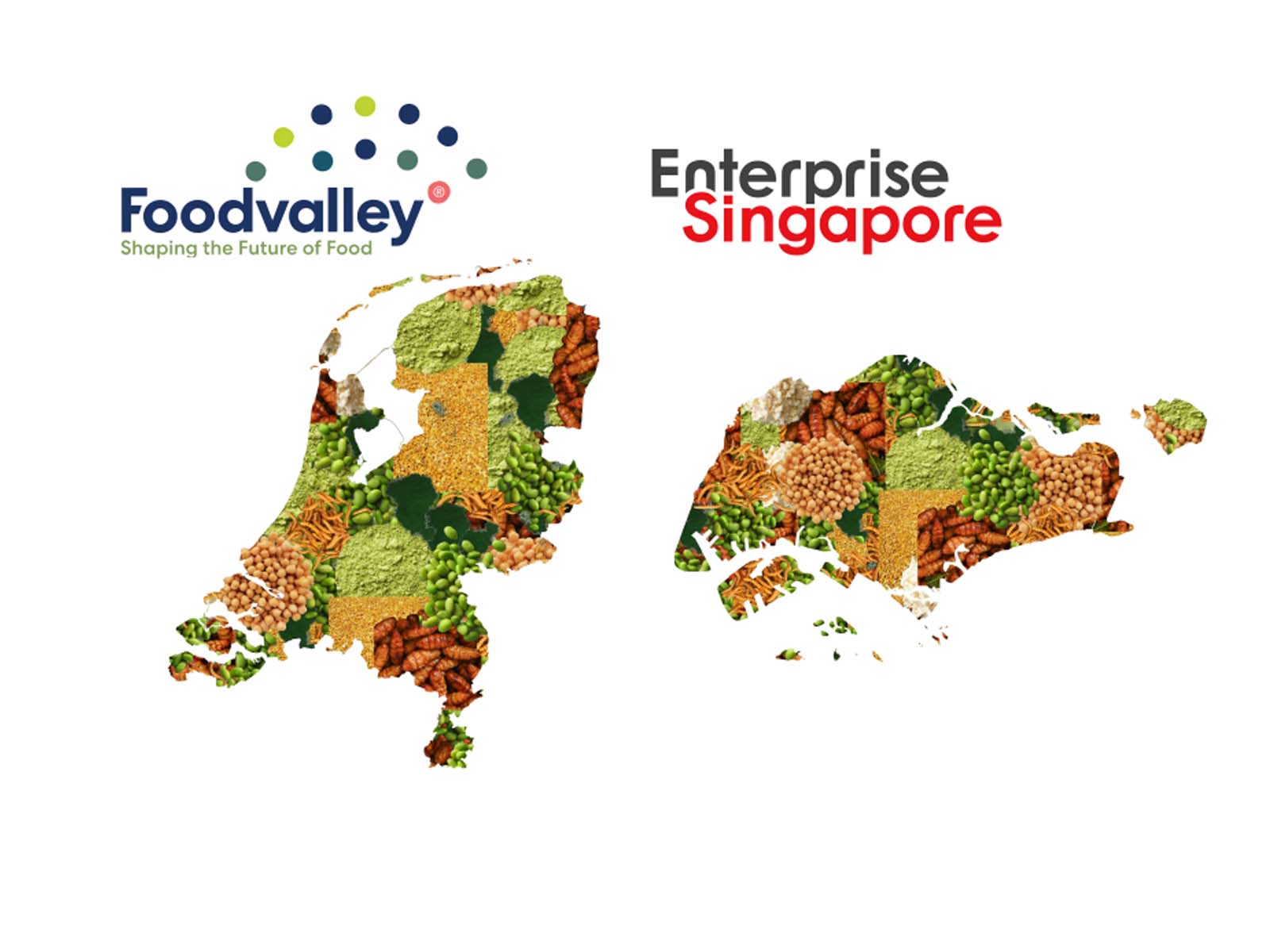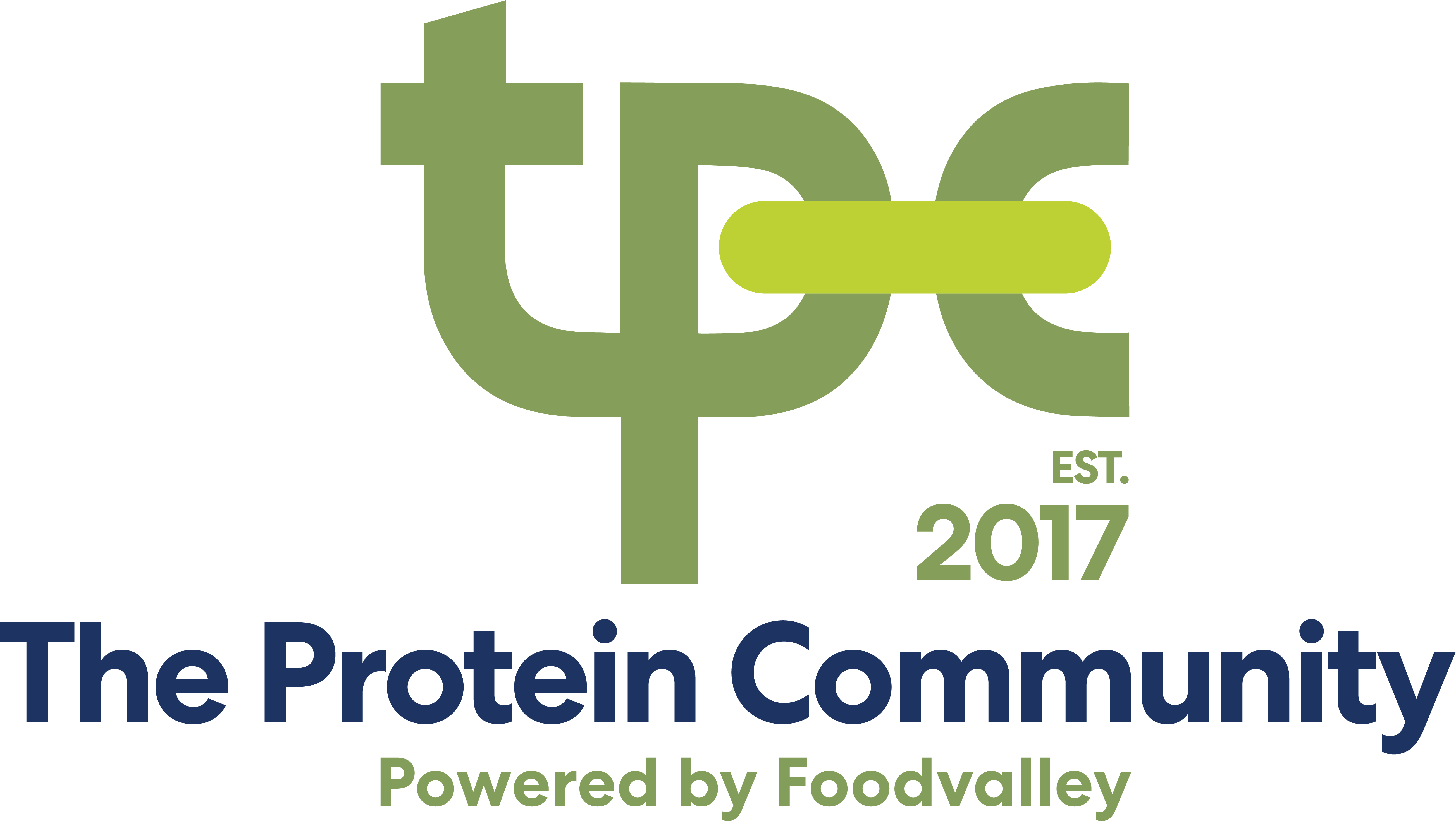Innovation Scan Protein Shift: Netherlands and Singapore can strengthen each other
The market for sustainable proteins is growing rapidly, in both the Netherlands and Singapore, creating significant collaboration opportunities for entrepreneurs. A recent innovation scan, by Foodvalley NL and Enterprise Singapore (the key government agency developing Singapore as a startup hub) absolutely confirms this. The scan-report was presented during the Foodvalley Summit Protein Shift, on October 13, 2020.
“The Netherlands and Singapore are international leaders in R&D and knowledge-intensive systems, and there are many innovative players in the sustainable proteins market,” says Miranda van Dijck, Foodvalley Innovation Analyst closely involved in the innovation scan. “This makes them interesting dialogue partners.”
Collaboration
According to Van Dijck, there are plenty of opportunities for cooperation between the two countries. “Think of the development of new production processes and technologies, but also co-branding and co-manufacturing,” she illustrates.
Some parties in the Netherlands and Singapore are already working together. Singapore start-up Shiok Meats, which cultures shrimp meat, recently received a total of US$12.6 million through the Dutch investment fund Aqua-Spark and SEEDS Capital, Enterprise Singapore’s investment arm.
Deeper understanding
Through this innovation scan, Foodvalley NL and Enterprise Singapore aim to develop a deeper mutual understanding of each other’s ecosystems, identify market opportunities, and catalyze further exchanges and innovation partnerships between Dutch and Singapore institutions and businesses.
Growth market
In both Singapore and the Netherlands, the market for sustainable proteins is growing, mainly driven by sustainability and health concerns. “Developments are particularly rapid in the meat substitutes category,” says Van Dijck. Vegetable snacks and ready meals are also on the rise in both countries, but especially in Singapore.
Alternative protein sources
The report highlights several companies extracting proteins from alternative sources such as algae, insects and residual flows (e.g. okara, from soy and tofu production), as well as applications based on cell cultures (cultured meat) and fermentation technologies.
Ecosystem
The report also provides an overview of the key players in the ecosystem – the incubators, accelerators and investors, who are supporting the growth of innovative startups in the alternative protein space. In addition, it lists shared facilities – from pilot to industrial scale – for both countries. “This will help companies, who want to scale-up production of alternative protein ingredients and end-products, to identify relevant infrastructure support without the need for heavy setup costs during the initial phases,” says Van Dijck.
Free download
Members of Foodvalley will receive a link to a free download of the report.
Foodvalley membership
Foodvalley member companies have access to the best knowledge, knowledge suppliers, partners and a large (inter)national business network to accelerate innovation and growth. More information about the Foodvalley Membership.
Related articles
Innovation scan of the Netherlands and New Zealand: market for sustainable protein still growing

